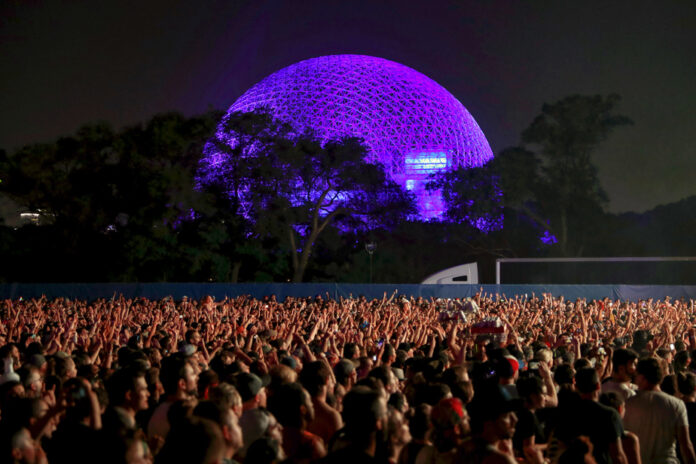Allegations of GHB poisoning at the Festi-Plage in Cap-d’Espoir last year in Gaspésie rocked festivals across Quebec. They have also served as a spark plug: while the services have been established for a few years in Montreal, the festive community in the region is mobilizing to support victims of sexual assault and harassment.
A pilot project, Festive
“Festival-goers were happy to see a team present on the ground since they remembered the allegations from last year,” said Sara Ternoir, from the Table de concertation des groupe de femmes de la Gaspésie et des Îles-de- la-Madeleine, which is at the origin of Festif
The Festi-Plage de Cap-d’Espoir, which begins on July 26 in Percé, will be the next to participate in the Table de concertation project. Last year, several participants said they had been assaulted and drugged against their will on the sidelines of the festival. Complaints had been made to the Sûreté du Québec, which investigated the allegations. “It’s really important that these are collective measures and not victimizing or individual measures only”, believes Sara Ternoir. It is a question of identifying resources on the ground and in the organizations of the events “rather than saying: check your drink all evening”, she adds.
“We are in a movement. We’re far from the only ones,” she said. CALACS will also be present for the first year at the Festif! of Baie-Saint-Paul, which begins on July 20. It was also the allegations in Cap-d’Espoir last year that accelerated the establishment of resources on the ground, says the director general, Clément Turgeon. “We wanted to take the lead,” he says, well aware that the task is not easy for all festivals that do not necessarily have this “reflex”.
Like other events in Quebec, the festival already had its “comfort zone” on the site, where there are organizations working to prevent alcohol and drug consumption. This space can now be used by people who have felt targeted by sexual violence, i.e. psychological or physical gestures of a sexual nature, which are carried out against someone without their consent. They can take many forms, such as harassment, voyeurism and sexual assault.
The challenge will be the sustainability of these safe spaces and long-term prevention, according to Sara Ternoir. This is an opinion shared by Jordanne Blais-Rochefort, one of the co-founders of the organization Scène
In addition to having stakeholders present on the ground during events, Scène
“We decided to be the solution,” she adds. Stage
The two women hope that their pilot project will inspire other actors in the field to get involved. However, it will have to be a collective work, and that it includes a multitude of actors from Quebec society, underlines Patrick Kearney, of the Regroupement des festivals regionals artistesdépendants (REFRAIN). Festivals can have measures in place to be ready when GHB poisonings occur, but the government must also be on the side of prevention, he adds.
Sara Ternoir agrees: “Our goal is also to put the responsibility not just in the hands of the festivals, but in the hands of our political decision-makers. She would like to sit down with the municipalities so that the new festivals that are set up have measures to prevent sexual violence.
A report by the Conseil des Montréalaises published in 2018 had a snowball effect in Montreal. Since then, the major festivals in the metropolis have set up intervention brigades visible on the ground.
According to this report, the lack of obvious possibility to call for help is the first source of insecurity among women during an outdoor festive event.
During the Francos, which ended on June 17, the brigade of interveners dressed in pink, the Hirondelles, was present on the ground. It is not in vain: an intervention would have taken place once every two days, according to Alain Simoneau, director of security for Groupe CH, which brings together most of the major Montreal festivals under the banner of evenko.
Les Hirondelles will tour the festivals overseen by the largest event organization in Montreal. After the Francos, the Montreal International Jazz Festival welcomes them, then Just for Laughs, before their migration to Parc Jean-Drapeau, where Osheaga and Île Soniq will take place.
For those who haven’t already followed suit, Alain Simoneau is adamant: “There is no reason not to set up services like these. »











